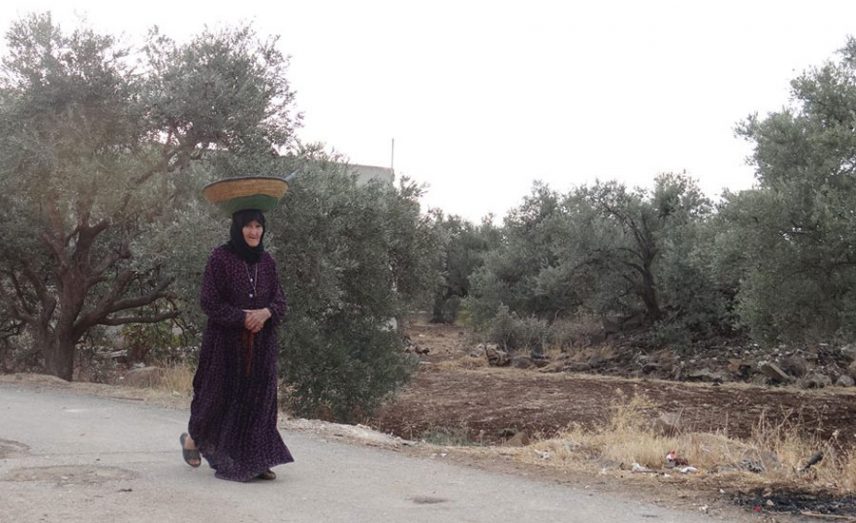Every morning I wake to my own special alarm for me and my family. It is different from other alarms. It doesn’t have an alarm tone, and does not wake us with sounds alone. There may be some who have an alarm on the same principle as ours, but for us — and those like us too — it is certainly the most precious alarm in the world.
This alarm is my grandmother. She wakes us after dawn prayers, sometimes with an image that has a prayer for us and our children and families, or a picture for the family together. Other times she shows us a video clip, expressing her love and endearment for us or for Syria, and other times she shows us an old clip of the family or a new child we have seen only on the screen. Other times, she wakes us up with something more beautiful: her warm voice reassuring us, calling on us and asking after us.
She spares no effort, wastes no time, and forgets not one of us, despite the large number of children, grandchildren and great grandchildren, asking after each of us one by one.
During the day, our grandmother shares news, clips, lessons, religious prayers, information and opinions, alongside pictures of our children and our own news on her personal Facebook page. She congratulates those who have had success or have become engaged or newlyweds, and blesses childbirths, and sends us news that we may not have heard before. We discuss developments and updates, and although she brings our family together on a group on WhatsApp with the name “six beloved,” she does not refrain from sending personal messages to each one of us individually, as she knows each of our interests.
Before the revolution, my grandmother and grandfather would invite us every week to meet with our family in their home. They would prepare for us our favorite foods, knowing each of our most loved brands and what our favorite fruits were, and in what place we all liked to sit. They remembered probably more than ourselves and knew our news and discussed our affairs, and took part in our personal decision-making. We would sit under their roof throughout the day and night, without taking notice of the time. None of us wanted to leave, even for a moment, especially when my uncles and aunts were back from traveling, and the family was complete. On these occasions we would race to see who would arrive first, and who would be the last to depart. Sometimes my grandfather would recommendation after 3 a.m. that we go out on a short walk to Mt. Qassioun, or that we prepare ourselves to go in the morning to the lake or anywhere we could agree on.
After the revolution, the checkpoints and borders — especially on Friday, the day off when we would gather at my grandmother’s — made it hard for us to meet. We spent half our time on the roads, and we became bound by the timing of arrival and departure according to where each of us lived. It wasn't long before the regime began to pursue some of us and we were unable to see our family, and the landline or mobile that had been only to say hello and to check in and invite to meetings, became all that we had to know one another’s situation, with codes and within limits, and sure enough my grandmother was the one to check in most on us and to get us together, even over the phone.
My grandmother was using mobile phones and Skype even before the revolution, but in a limited way, and only with my traveling uncles and aunts. On Facebook there was nothing but written messages, and Skype for video calls. But today, after every member of our family has fled to an Arab or European country, and with the spread of social media, increasing day after day, my grandmother’s phone has come to hold app after app, trying all new ones, thinking perhaps it will be better than what preceded it.
And just as she gathered us together in her house with my grandfather before his death, my grandmother, who is more than 70 years old, is the one who gathers us together in a single moment on the cell phone screen. But this time it is not in her real house in central Damascus, but from her house in Sweden, where she is waiting for us to visit her and continue those gatherings.
My grandmother was certainly not the only one in Syria to embrace her family with love and warmth and unlimited tenderness — as is the nature of Syrians. But she is the most precious and greatest grandmother and mother in this world for me and my family, and will remain “Umm Mataz and Abou Mataz,” a symbol of our family and a source of strength. We will continue to pray for her long life until we return and meet in her house, in good health and spirit, and to my grandfather rest and forgiveness, and to all elders in all their days.
This article was translated and edited by The Syrian Observer. Responsibility for the information and views set out in this article lies entirely with the author.


